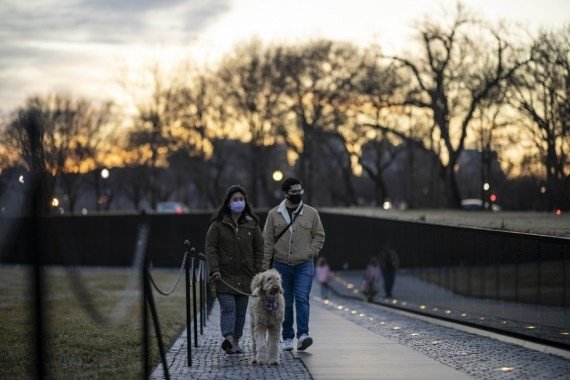America
US health agencies face challenge of restoring public trust'

Washington, May 16
A new survey has revealed that health agencies in the US were facing the challenge of restoring public trust over a year into the Covid-19 pandemic.
The rsurvey from the Robert Wood Johnson Foundation and Harvard T.H. Chan School of Public Health found 52 per cent of respondents said they had a "great deal or quite a lot" of trust in the Centers for Disease Control and Prevention (CDC), while 25 per cent said they somewhat trusted the agency.
Twenty per cent of respondents said they had little to no trust in the CDC, reports Xinhua news agency.
Fewer than four in 10 adults reported having a great deal or quite a lot of trust in the National Institutes of Health (37 per cent), the Food and Drug Administration (FDA) (37 per cent), the National Academy of Medicine (34 per cent), and the federal Department of Health and Human Services (33 per cent), when it comes to recommendations made to improve health, according to the survey.
The low levels of trust were not just at the federal level.
Only 44 per cent of respondents expressed strong trust in their local health departments, and 41 per cent said as much for their state health departments.
The survey also found only about one third of adults (34 per cent) gave positive ratings to the nation's system for protecting the public from health threats and preventing illness, with nearly two thirds of adults (65 per cent) rating the nation's public health system as fair or poor.
These ratings were lower than roughly a decade ago, when this question was previously asked in 2009 and 43 percent of the public rated the nation's public health system as excellent or good.
As Sunday morning, 32,923,318 confirmed Covid-19 cases have been reported in the US, with 585,699 deaths, according to the Johns Hopkins University.
The two tallies still account for the world's highest, making the US the worst hit country in the world
Health experts have attributed the US' failure to control the virus to political polarization, a rejection of science and an absence of a national strategy under the previous administration.



































